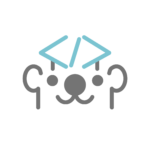In school, children learn about the existing wealth of knowledge. This information has already been discovered by those that came before us and it has formed society today. The current system teaches kids to apply this existing knowledge in relevant jobs when they grow up. They study biology to be doctors, physics to become engineers and finance and economics to become bankers. These jobs may evolve with technology but will likely stick around for the long haul.
So, while the education system is a crucial building block, perhaps less time is currently being spent on developing a child’s innovative and inventive traits. Children are the workforce of the future. However, they shall thrive only as long as their education remains relevant or if they can adapt quickly enough to changes.
For example, a worker or company in sales and marketing that relied on newspapers and billboards to advertise products would be out business in today’s world. The innovations brought upon by Google allows businesses to sell to customers on a device they cannot seem to ever put down, their mobile phone. Google is just one of the many examples of industry disruptors (Amazon in retail, Grab in transport, AirBnB in accommodation). These disruptors break the mould and re-define the way industries are run.
We don’t learn this in school. It is impossible to teach a kid how to create a Google or an Amazon. However, we can provide our kids with the right skillset to spark an idea that could be the next big innovation. Empowering kids with the power of code is central to this. Directly, coding allows us to create. Anything we can imagine, we can build with code. Giving this power to kids allows them to explore their own ideas in a concrete and creative way.
Indirectly, coding also develops creativity, problem solving and critical thinking skills within kids, skills commonly found in the modern-day inventors and innovators. In fact, most tech inventors/billionaires started coding from a young age and acknowledge its importance in their development. Elon Musk, founder of the Tesla and SpaceX built and sold his first computer programme when he was 12. From there, he continued to find creative ways to solve problems faced by society (PayPal – the first user-friendly money transfer service in 2000). He now owns the most valuable car company (an electric car company!), more valuable than the five biggest traditional car companies combined (Toyota, Volkswagen, Daimler, GM and BMW) paving the way forward for environmentally-friendly solutions for the world’s needs.
Of course not all kids will want to pursue the path of being a disruptor and build their own ideas and business when they grow up. Nevertheless, the skills learnt during coding can be applied anywhere, from greater creativity to being able to think about problems and form actionable solutions to these problems through structured thinking. There are many solutions that are to be discovered, some may disrupt an industry but most will likely be incremental enhancements to the way we do things. Either way, both will shape a child’s future career pathway so ensuring they are equipped for it is essential. Steve Jobs, founder of Apple once said that everyone should learn how to code as it “teaches you to think”. And with modern programming languages such as Python and Scratch, learning to code has never been easier!
Build A Code offers tailored and personal coding classes that are customised to your child’s interests and your goals for them. Our classes include a series of fun games and projects that represent real-world applications. Free trial classes available.
Find out more by tapping on the bear below!

